14 Tips For Helping Students With Limited Internet Have Distance Learning
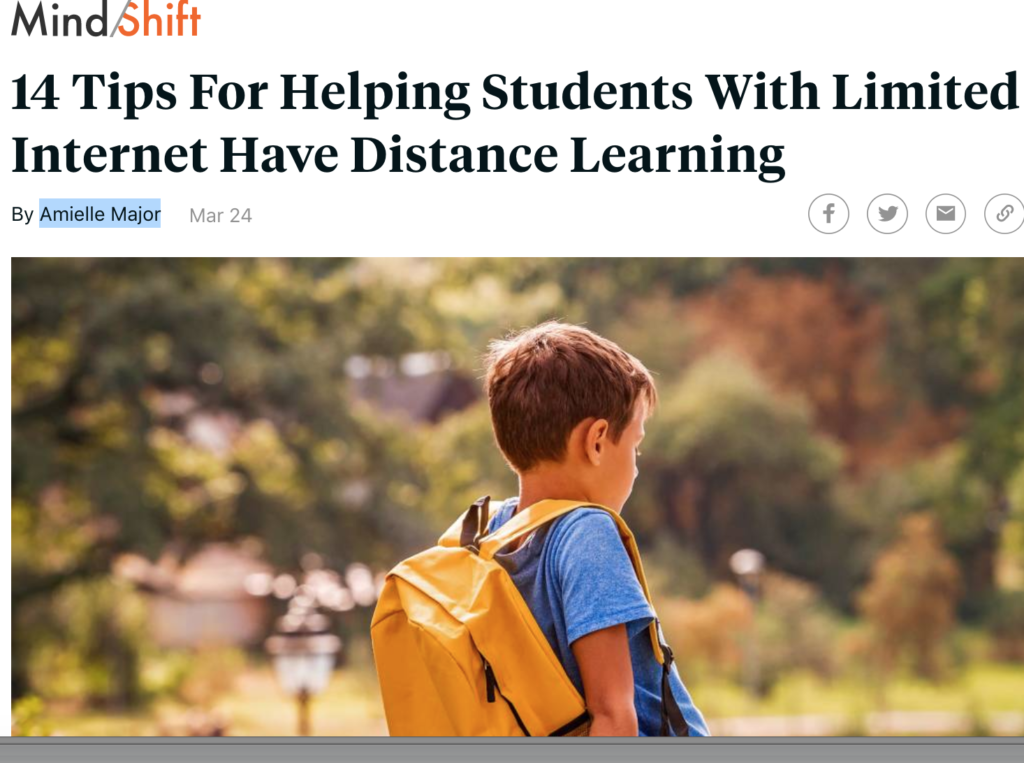
This article is full of strategies and tips to help make distance learning work for students with limited internet access during this time of school closures due to COVID-19. It provides specific, practical tips for working with students who only have cellphones and limited data or internet plans to complete school work. It includes advice… Read More ›
Here’s What Schools Can Do For the Millions of Students Without Internet Access
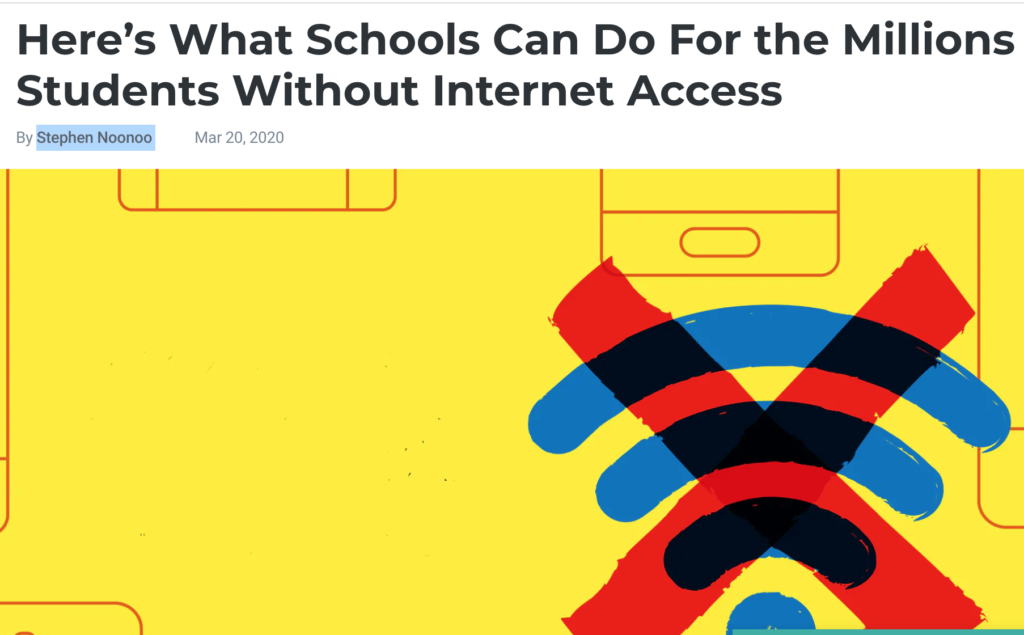
This article describes how schools are working to address issues of unequal access to learning during school closures due to COVID-19 by boosting connectivity to the internet. In particular, it discusses the growing number of schools and districts purchasing hot spots. The article also looks at the creative ways some schools and districts are reaching… Read More ›
COVID-19 Racial Equity & Social Justice Resources
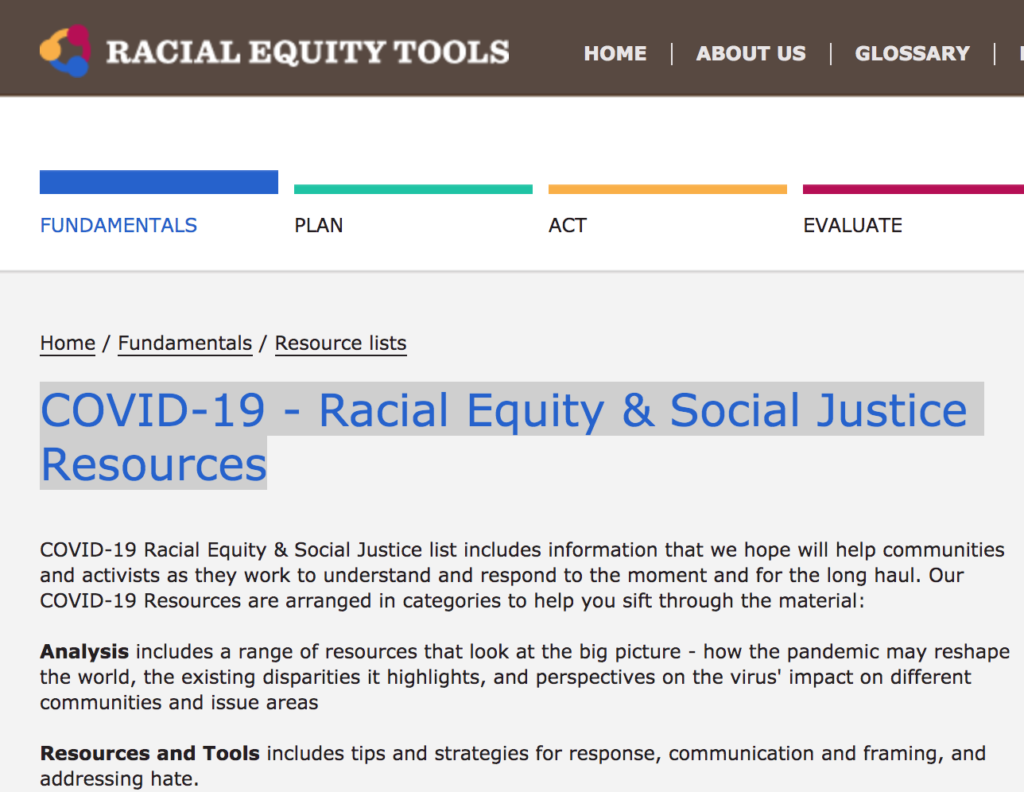
This portion of the Racial Equity Tools website was put together to help community leaders address the COVID-19 pandemic with social justice and equity lens. It features links to resources on analysis of the big picture, community care, organizing and solidarity, resource building and rapid response and virtual work and engagement. It also includes links… Read More ›
How the #DisruptTexts Movement Can Help English Teachers Be More Inclusive
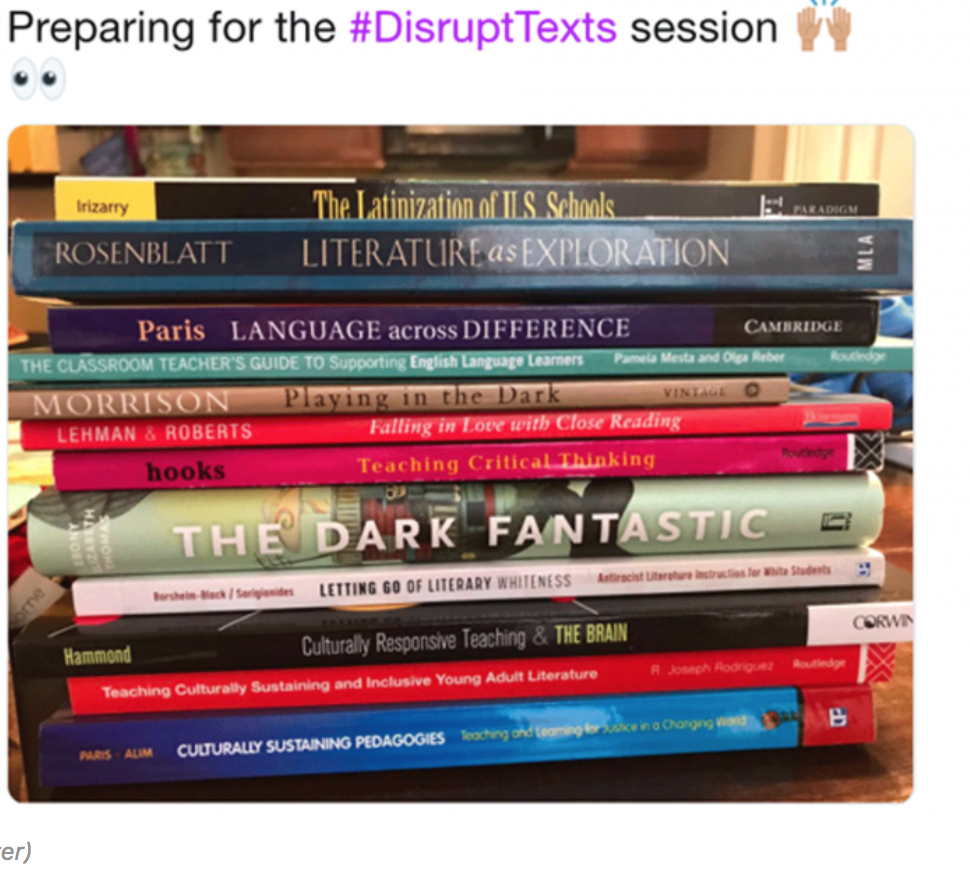
This article features advice from the founders of the #DisruptTexts Twitter chats and website who are working to help other English Language Arts teachers create equitable and inclusive curriculum. Through weekly twitter posts and a moderated online discussion, they encourage teachers to reflect and consider the message their choice of texts sends to students about whose voices and… Read More ›
4 Strategies to Make Grading Tolerable
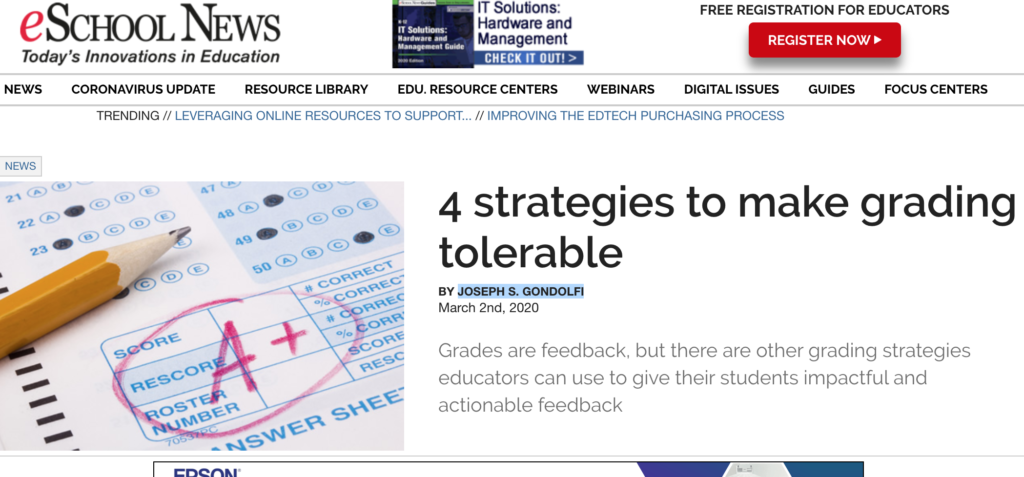
In this article, a teacher offers advice on how to share responsibility for providing feedback with students. He shares his journey of moving away from providing grades to focusing on formative feedback. The section that discusses how he teaches students to assess their own writing is particularly useful for writing teachers. Source Organization: Eschoolnews Visit… Read More ›
How to Make Student Choice Work
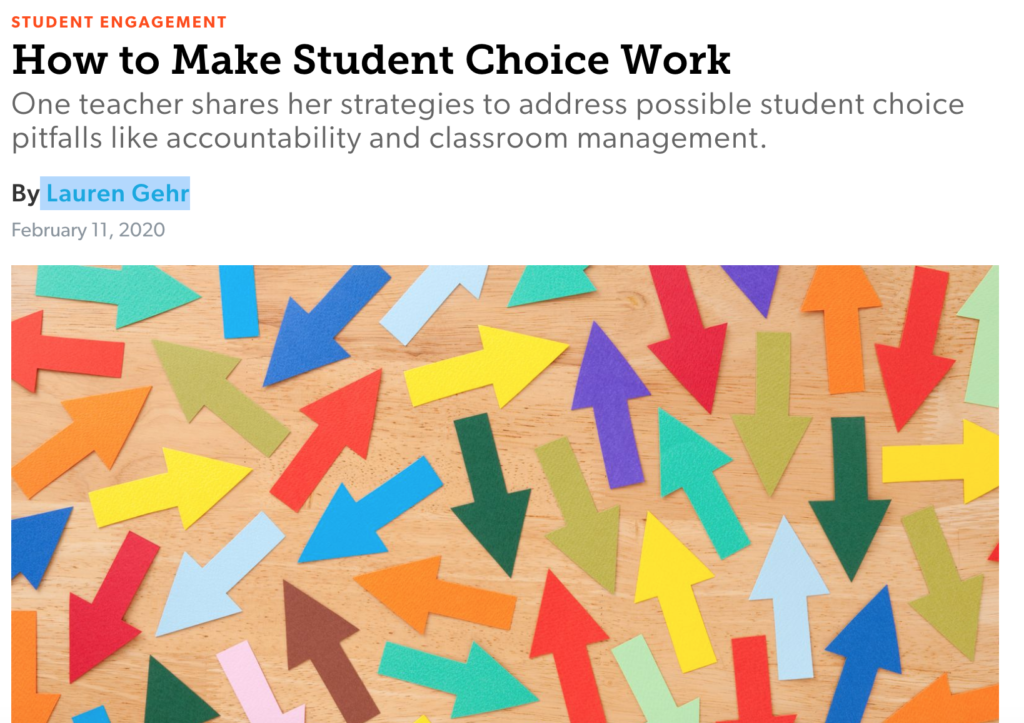
In this article a teacher discusses how she gives her students the power to choose what they learn and how they demonstrate their learning. She shares advice and strategies to address possible student choice pitfalls like accountability. This is a great read for teachers of any subject. The suggestions on how to use technology to… Read More ›
Teacher Resources While Social Distancing

Empowering student-centered learning in new ways Never have my two worlds collided in such a big way. I have worked in education research for the last 20 years and spent the last several curating the Students at the Center resource database part-time. The rest of my hours are spent raising two delightful AND infuriating elementary-age… Read More ›
PeerGrade

This tool lets students conduct peer review online. It allows teachers to set an assignment and select a review rubric from an existing database or create their own. Students can upload their work and review each others. The teacher can view all comments. The tool was designed for college courses, so may be most useful… Read More ›
Teaching Students to Give Peer Feedback
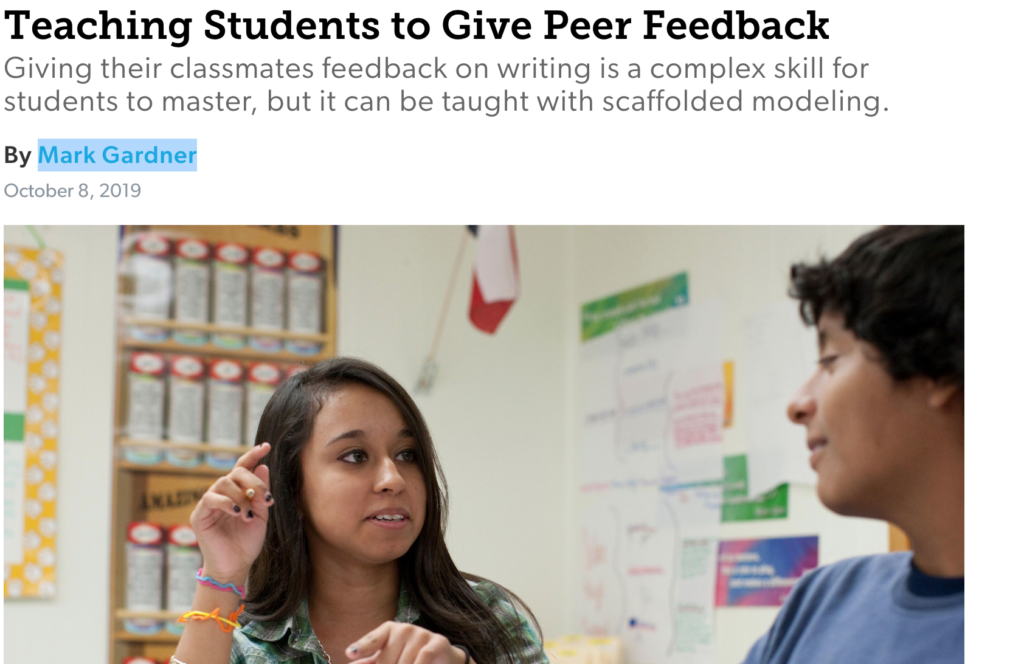
A high school English teacher shares how he teaches peer feedback skills in this article. To help teach students this important skill, he defines quality feedback, provides structured routines and models how to provide feedback. This scaffolded approach could be used by teachers of any subject who want to bring peer feedback to their classroom.… Read More ›
My Greatest Teaching Problem Was Feedback. Here’s How Research Helped Me Solve It
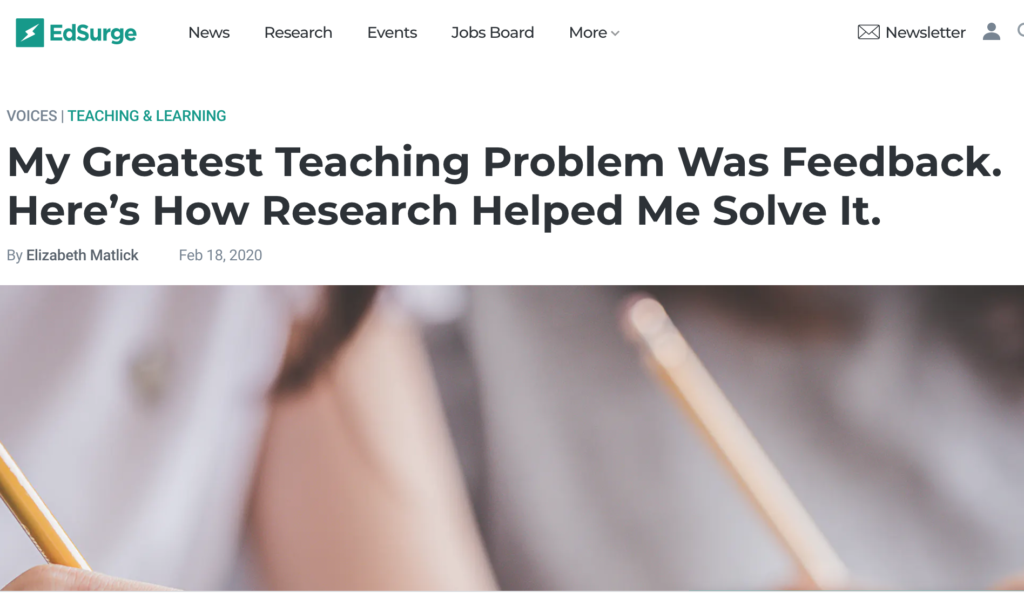
In this article, a high school English teacher shares how her approach to student feedback has changed through her teaching career. She describes how she turned formative assessment into a shared responsibility by using self and peer feedback in her classroom. She outlines the work she did to better understand feedback literacy and the metacognitive… Read More ›
The Novice to Expert Shift
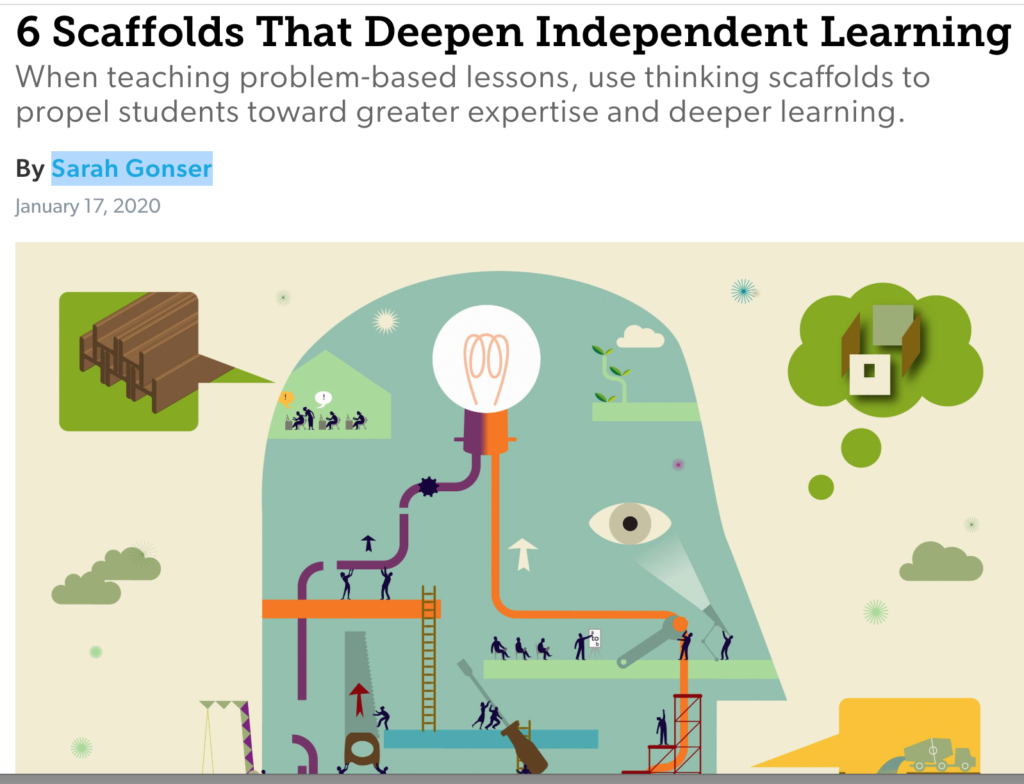
This article presents useful take-aways from a small scale study of students participating in a student-driven, problem-based science curriculum. Researchers found the prompts and support instructors used to guide students through the curriculum and activities, sometimes called thinking scaffolds, were critical to the growth of deeper level thinking skills. Any teacher launching a problem-based project… Read More ›
Making SEL Culturally Competent
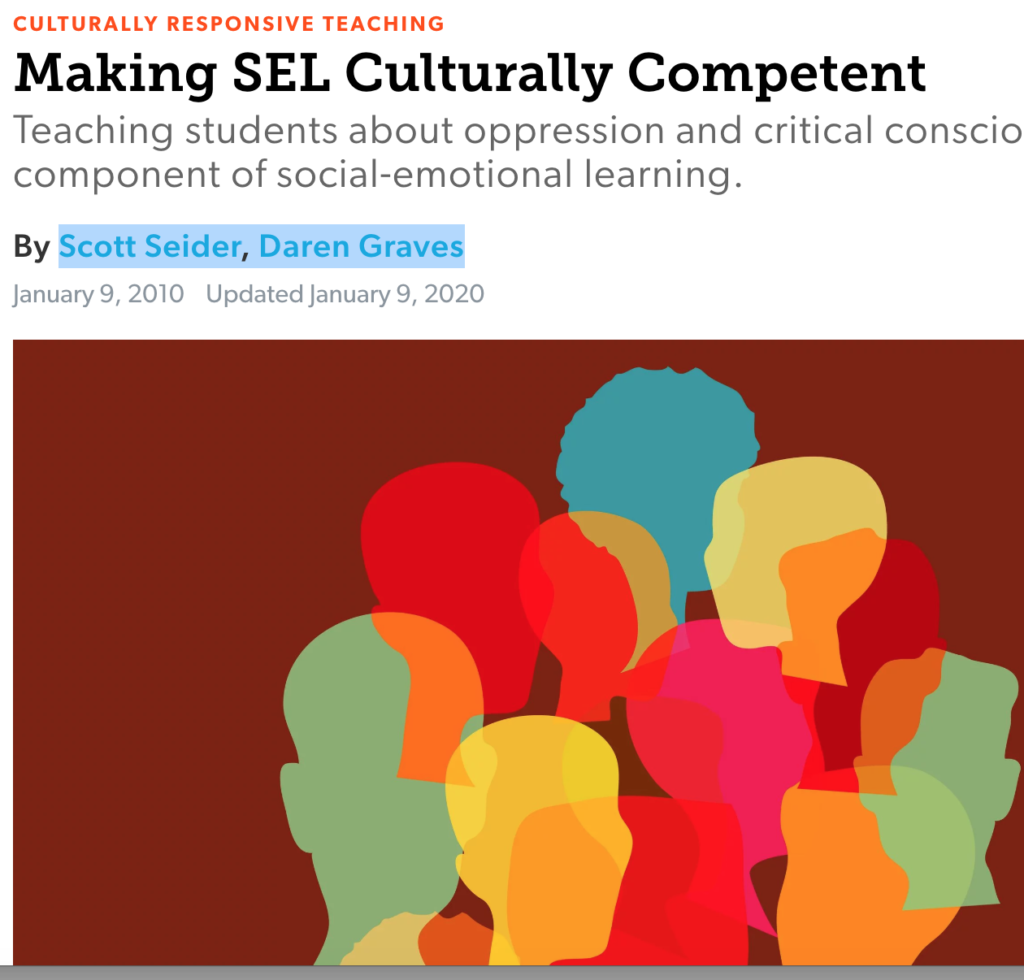
This article provides strategies for educators to ensure social-emotional learning (SEL) practices are enacted in ways that are culturally responsive and equitable for youth. In particular, it introduces the concept of critical consciousness, which refers to youths’ ability to recognize and resist oppressive forces shaping their lives and communities. Any educator of any grade-level can… Read More ›